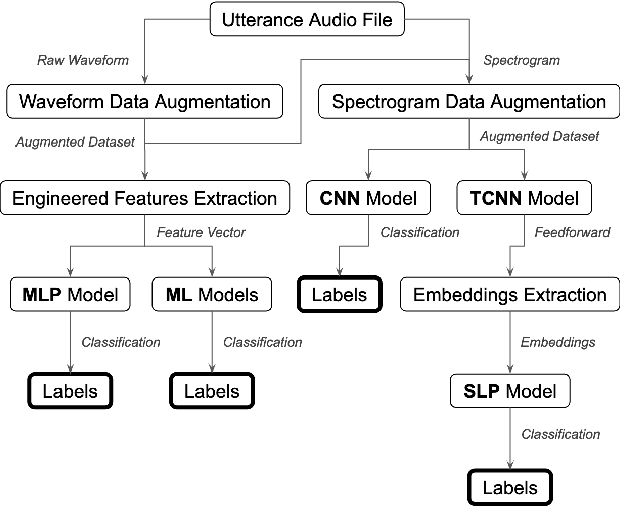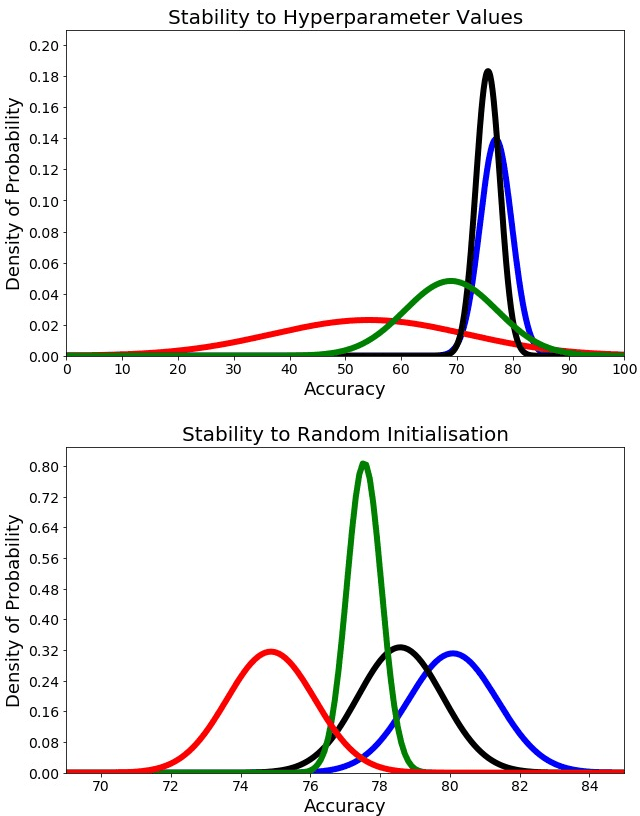Learning Models for Query by Vocal Percussion: A Comparative Study
Paper and Code
Oct 18, 2021


The imitation of percussive sounds via the human voice is a natural and effective tool for communicating rhythmic ideas on the fly. Thus, the automatic retrieval of drum sounds using vocal percussion can help artists prototype drum patterns in a comfortable and quick way, smoothing the creative workflow as a result. Here we explore different strategies to perform this type of query, making use of both traditional machine learning algorithms and recent deep learning techniques. The main hyperparameters from the models involved are carefully selected by feeding performance metrics to a grid search algorithm. We also look into several audio data augmentation techniques, which can potentially regularise deep learning models and improve generalisation. We compare the final performances in terms of effectiveness (classification accuracy), efficiency (computational speed), stability (performance consistency), and interpretability (decision patterns), and discuss the relevance of these results when it comes to the design of successful query-by-vocal-percussion systems.
 Add to Chrome
Add to Chrome Add to Firefox
Add to Firefox Add to Edge
Add to Edge